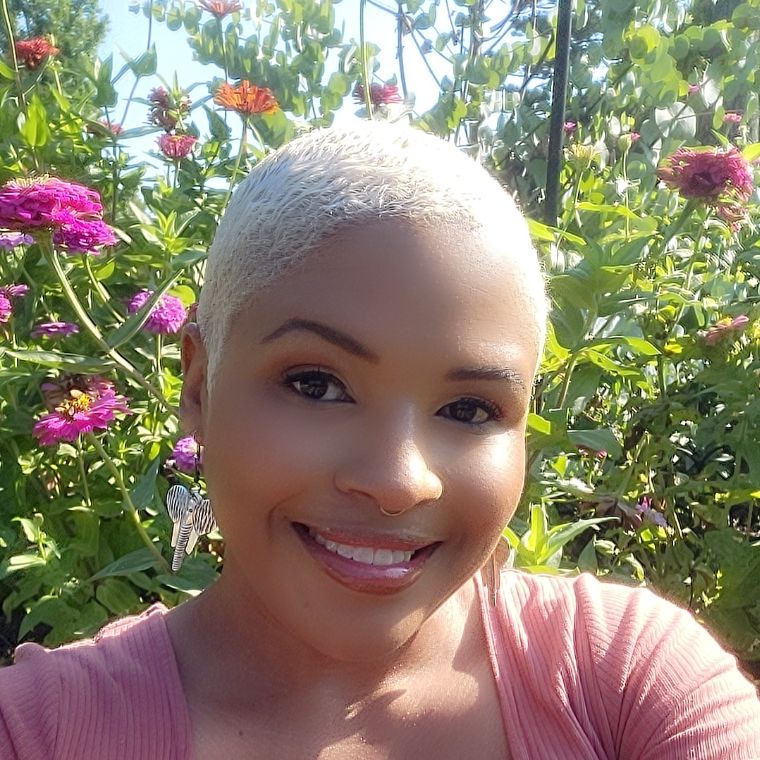Finding Support for Postpartum Depression in Charlotte
If you’re living with Postpartum Depression in Charlotte, we see how hard this is—and you are not alone. MiResource makes it simple to connect with therapists in Charlotte, offering both online and in-person options that fit your life. You’re in the right place to find compassionate, trusted support. We’re here to help you take the next step when you’re ready.
An Overview of Postpartum Depression
Postpartum depression is a common, treatable mood disorder that can affect new parents in Charlotte with symptoms like persistent sadness, anxiety, guilt, or feeling disconnected from your baby. It matters because it can impact your well-being, relationships, and your child’s early development—but you’re not alone, and help is available. Therapy for postpartum depression in Charlotte offers a safe, supportive space to understand what you’re experiencing, build coping tools, and create a plan for healing.
Defining Postpartum Depression
Postpartum Depression is a common, treatable mood condition that can start in the weeks or months after childbirth, affecting many new parents in Charlotte. Hallmark symptoms include persistent sadness, anxiety or panic, irritability, guilt or hopelessness, trouble bonding with the baby, sleep and appetite changes, and intrusive or scary thoughts. In day-to-day life it can look like struggling to get out of bed, finding it hard to care for the baby or yourself, avoiding friends and family, missing appointments, or having trouble concentrating. Authoritative sources like the Centers for Disease Control and Prevention, the American College of Obstetricians and Gynecologists, and the National Institute of Mental Health provide clear guidance on recognizing and treating Postpartum Depression; if this sounds familiar, consider exploring the broader Postpartum Depression therapy resources on MiResource.
Benefits of Therapy for Postpartum Depression
Therapy in Charlotte provides a supportive space to manage overwhelming feelings, rebuild energy, and strengthen bonding with your baby. Evidence-based therapies like Cognitive Behavioral Therapy (CBT) teach coping skills to challenge negative thoughts, reduce anxiety and low mood, and improve sleep. Interpersonal Psychotherapy (IPT) addresses role changes and relationship stress, improving communication and support with partners and family. Behavioral Activation helps you re-engage in meaningful activities and routines, lifting motivation and mood. Mindfulness-based approaches reduce rumination and increase calm during daily caregiving—therapy works, symptoms can ease, and hope can grow.
The Therapy Journey – What to Expect
Starting therapy for Postpartum Depression in Charlotte begins with a compassionate initial assessment, where a clinician listens to your story, reviews symptoms, and considers factors like sleep, support, and birth experience. Together, you’ll create clear, realistic goals—such as easing mood swings, strengthening bonding with your baby, and restoring daily routines—that guide care at a pace that feels manageable. Ongoing sessions are collaborative and flexible, adjusting as your needs change and coordinating support with partners, family, or medical providers when helpful. Your therapist may use evidence-based approaches like Cognitive Behavioral Therapy (CBT), Interpersonal Therapy (IPT), and mindfulness-based strategies, tailored to your values and circumstances. Many parents notice gradual improvement over weeks, and while progress can ebb and flow, you’ll have a steady plan, practical tools, and a caring team in Charlotte walking with you.
Tips for Choosing the Right Therapist in Charlotte
Enter “Charlotte” as your location and select “Postpartum Depression” under Conditions to see matching providers. Use the Therapy Approach filter (e.g., CBT, IPT, trauma‑informed, culturally responsive care) to narrow by methods that fit your preferences. Add your Insurance to view in‑network options, then select your preferred Language to ensure clear communication. Next, filter by Availability to find clinicians with openings that match your schedule. Refine by Charlotte neighborhoods—such as Uptown, South End, NoDa, Dilworth, or University City—to reduce travel time. Personal fit matters most, so compare profiles, read bios and specialties, and then take the next step by exploring the MiResource directory and starting your search today.
Why a Local Charlotte Therapist Can Make a Difference
Charlotte’s diverse, fast-growing community shapes how new parents experience postpartum depression. Transplants balancing demanding finance, healthcare, and tech jobs Uptown may feel isolated from family support, while long-time Charlotteans often lean on church and neighborhood networks in Dilworth, Plaza Midwood, NoDa, and Ballantyne. Faith communities and parent groups frequently normalize prayer and mutual aid alongside counseling, which many local therapists integrate respectfully into care plans. A Charlotte-based clinician understands the pressures around childcare waitlists, return-to-work timelines at major employers, and the city’s emphasis on productivity that can mask PMADs (perinatal mood and anxiety disorders).
Getting to in-person sessions can be manageable with CATS buses and the LYNX Blue Line connecting South End, Uptown, and University City, and many practices offer easy parking near medical hubs by Carolinas Medical Center and Novant Presbyterian. Summers are hot and humid with pop-up storms, and heavy spring pollen can sap energy—factors a local therapist considers when scheduling visits or encouraging outdoor activity at Freedom Park or the Rail Trail. Baby-friendly offices near Midtown, SouthPark, and Steele Creek reduce travel stress and allow for feeding breaks and partner participation. In-person care also helps with hands-on support for sleep routines, lactation challenges, and safety planning that’s harder to address virtually.
Helpful resources include Postpartum Support International’s North Carolina coordinators and helpline (1-800-944-4773; text HELP to 800-944-4773;), Mind Body Baby NC–Charlotte for free perinatal support groups and movement classes , and Family Connects Mecklenburg for free nurse home visits after birth . Mecklenburg County Public Health maternal-child programs can connect you to lactation, WIC, and behavioral health services . Atrium Health Women’s Behavioral Health and Novant Health offer perinatal mood disorder care and groups. Emergencies: call 988 (Suicide & Crisis Lifeline), 911, or go to Atrium Health Carolinas Medical Center ED, 1000 Blythe Blvd , or Novant Health Presbyterian Medical Center ED, 200 Hawthorne Ln . Crisis Text Line: text HOME to 741741 .
Postpartum Depression Therapy in Charlotte: FAQ Guide
When should I consider seeking help for Postpartum Depression?
Consider reaching out if your mood symptoms persist or worsen beyond a couple of weeks, or if sadness, anxiety, irritability, or hopelessness make it hard to care for yourself or your baby, go to work or school, or maintain relationships. It’s also important to seek help if you find yourself avoiding activities you used to enjoy or feeling overwhelmed most days. If you have thoughts of harming yourself or feel unsafe, seek immediate support. Early help makes a big difference, and you can access both in-person and virtual Postpartum Depression therapy in Charlotte.
What if I don’t click with my therapist right away?
It’s normal not to click with the first therapist you meet—finding the right fit is especially important because a strong therapeutic alliance is linked to better outcomes for Postpartum Depression. You can switch at any time and use MiResource to compare therapists in Charlotte by approach, insurance, and availability.
Does online therapy really work for Postpartum Depression?
Yes—research shows online therapy can be effective for Postpartum Depression, offering flexible scheduling, privacy at home, and easier access in Charlotte when leaving the house is hard with a newborn. It’s a strong option for talk therapies like CBT, but you’ll need a private space and reliable internet, and some people prefer the connection and structure of in-person visits. In-person therapy in Charlotte may be better if symptoms are severe, you’re having thoughts of self-harm, you want coordinated care (therapy plus medication), or you’d benefit from local resources like mother–baby programs or support groups. Many people use a hybrid approach—starting online and adding in-person sessions as needed.
How do I prepare for my first session?
1) Jot down how you’ve been feeling and when symptoms started, including mood changes, sleep, feeding, intrusive thoughts, and support at home.
2) Clarify your goals (e.g., more stable mood, bonding with baby, better sleep, coping tools) and any worries about therapy or medication.
3) Gather key history: pregnancy/birth details, medical conditions, current meds/supplements, previous therapy, and family mental health history.
4) Plan logistics: childcare if you prefer, or bring your baby—feeding and diaper breaks are welcome. Build in extra travel time and eat/hydrate beforehand.
5) Prepare your support system: let a partner or trusted person know when your session is and how they can help afterward.
6) Set gentle expectations: it’s okay to cry, pause to feed, or ask for breaks; you’re not being judged.
What to bring
- Photo ID, insurance card, payment method
- Medication list and OB/pediatrician contact info
- Birth and medical history notes
- A symptom/feelings log and goals
- Baby supplies if bringing your infant (diapers, bottle, nursing cover)
- Comfort items (water, snack, tissues)
What to expect
- A compassionate intake focused on your well-being, safety, and functioning
- Screening for depression/anxiety and collaborative goal-setting
- Discussion of therapy options, frequency, and coordination with your OB/pediatrician
- Space to talk about intrusive thoughts without shame; safety planning if needed
- Flexible options (telehealth, bringing baby, scheduling around feeds)
Questions to ask
- What is your experience treating postpartum depression/anxiety and trauma?
- What therapy approaches do you use, and how will we track progress?
- How do you involve partners or family if I choose?
- Can you coordinate with my OB/pediatrician about breastfeeding-safe medications?
- What should I do between sessions if I’m struggling, and what is your crisis plan?
- How often will we meet, how long does treatment usually take, and what are costs/insurance details?
If you’re looking for Postpartum Depression therapy in Charlotte, you’re taking a strong step—come as you are, and we’ll meet you there.
Can therapy truly help with Postpartum Depression?
Yes—therapy can truly help with postpartum depression. Robust research shows cognitive behavioral therapy and interpersonal therapy significantly reduce depressive symptoms, improve daily functioning and parent–infant bonding, and lower the risk of relapse. Many parents in Charlotte find that meeting regularly with a trained therapist, and following a plan between sessions, builds coping skills, restores sleep and energy, and eases anxiety and guilt. Consistency matters: attending sessions and practicing skills week to week leads to the strongest and most lasting improvements.













